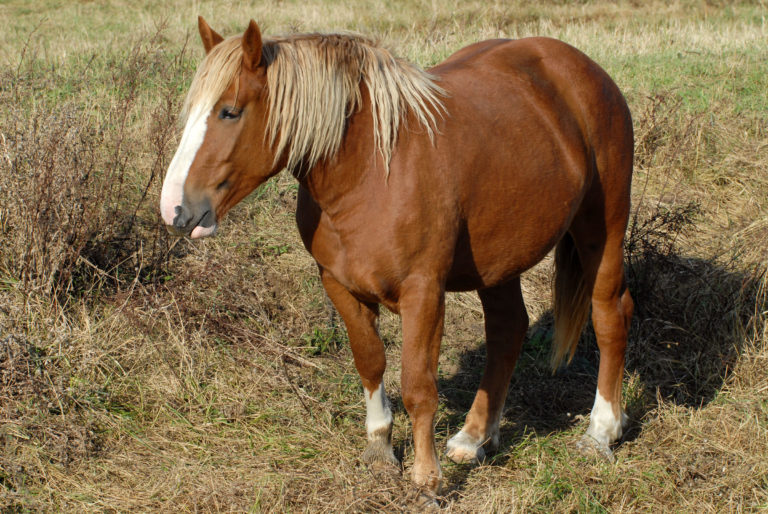Editor’s note: Each year, the American Association of Equine Practitioners (AAEP) Convention brings forward cutting-edge scientific topics. This venue provides excellent continuing education for equine practitioners from around the world, giving insights into state-of-the-art medical, surgical and business strategies. At the 2016 Convention in Orlando, Florida, interesting papers were presented at the Kester News Hour. Many of the papers discussed have practical implications for common problems in equine medicine and surgery. In addition, this information can help provide practitioners with material to educate clients in the best health care for their horses. We will cover four of these topics in separate articles on EquiManagement.com.
 Credit: iStock.com The concern expressed in the study is that the energy and mineral deficits could create hyperlipemia along with mineral loss.
Credit: iStock.com The concern expressed in the study is that the energy and mineral deficits could create hyperlipemia along with mineral loss.What About Hay Soaking for Equine Metabolic Syndrome Horses?
One common strategy to manage weight control in obese horses and those with a propensity to become obese is to soak the hay before feeding. This is reported to help leach away fructans and water-soluble carbohydrates. One study discussed (by Argo, C. McG; Dugdale, A.H.A.;McGowan, C.M.) was titled “Considerations for the use of restricted, soaked grass hay diets to promote weight loss in the management of EMS and obesity” (Vet J 2015;206:170–177). This studysought to examine the nutritional consequences of hay soaking.
For six weeks, six horses were fed 1.25% of their actual body weight with hay soaked for 11½ hours prior to feeding; these individuals were compared to six horses fed fresh hay. The researchers found that soaking caused losses of:
- 25% of dry matter
- 51% of ash mineral
- 24% of digestible energy
- 44% of water-soluble carbohydrates
While soaking the hay doubled weight loss in the study horses over a six-week period relative to those eating fresh, non-soaked hay, there was also a severe energy loss from 81.4% to 63.6%. The concern expressed in the study is that the energy and mineral deficits could create hyperlipemia along with mineral loss.
The study points out significant nutritional alterations caused by soaking, yet the method used an excessive time of soaking, seemingly to simulate feeding practices of owners preparing the next meal in advance. However, the study did not look at the results of soaking for only 30-60 minutes, which is commonly recommended practice.
The Take Home
Common medical conditions seen by equine practitioners continue to be researched for better approaches and solutions. Having this knowledge in hand enables veterinarians to keep abreast of cutting-edge advances. Clients benefitting from this information will be better served, hopefully with improved outcomes for their equine partners. Client satisfaction from favorable outcomes is not only gratifying to the practitioner, but it also inspires loyalty to your practice.








